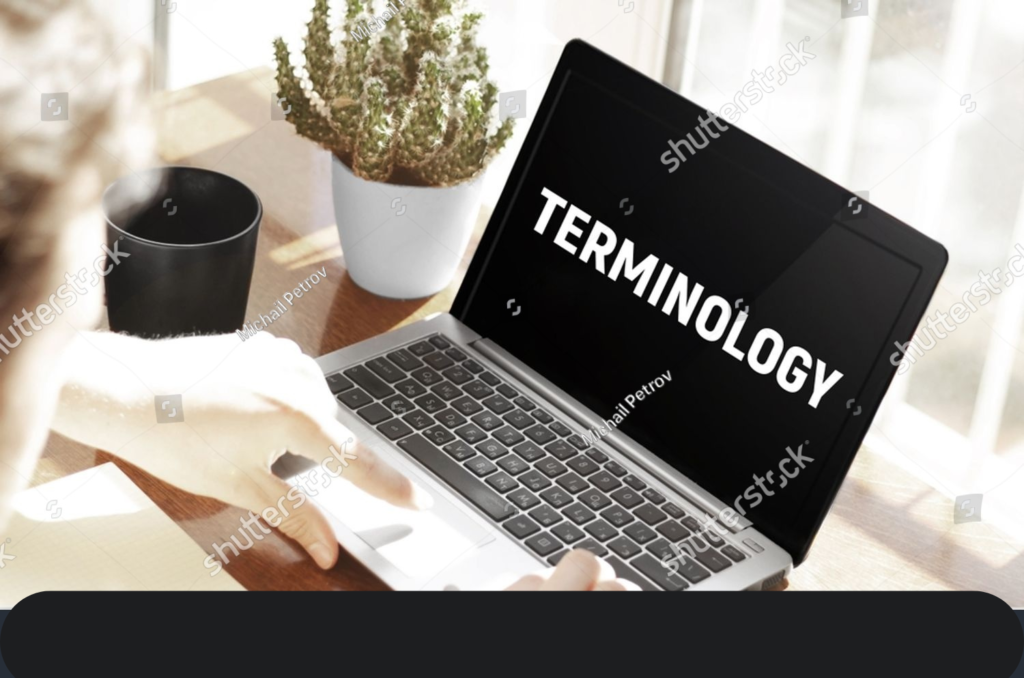Communication Ability – Key Topics and Preparation for Tips-TG ICET2025

In today’s competitive exam landscape, the Communication Ability section is more than just an afterthought—it is a decisive factor that can elevate your TG ICET 2025 score from good to great. Consequently, a focused, strategic approach to vocabulary, grammar, reading comprehension, and specialized terminology can dramatically improve both accuracy and speed. Therefore, in this SEO‑optimized, 1,500‑word guide, we will delve into the core topics of Communication Ability, present actionable preparation tips, and weave in transition words to ensure a coherent, reader‑friendly flow.
📋 Section Breakdown
Before we explore detailed strategies, let’s first understand the structure of the Communication Ability section:
- Total Questions: 50
- Marks: 50 (1 mark each)
- Time Allotted: ~35–40 minutes
Moreover, this section is subdivided into:
- Vocabulary (Synonyms, Antonyms, Contextual Usage)
- Functional Grammar (Tenses, Voice, Articles, Prepositions, Phrasal Verbs & Idioms)
- Reading Comprehension (Passages & Q&A)
- Business and Computer Terminology
By clearly mapping out these four pillars, you can structure your study plan with precision and purpose.
1. Vocabulary: The Foundation of Effective Communication
First and foremost, vocabulary forms the bedrock of language proficiency. Moreover, a rich lexicon empowers you to navigate synonym–antonym questions, infer meanings in context, and tackle fill‑in‑the‑blank tasks with ease. Consequently, let us examine the key focus areas and preparation methods:
Key Focus Areas
- Synonyms & Antonyms: Identify words with similar or opposite meanings.
- Contextual Usage: Deduce word meanings based on the sentence or passage.
- Word Roots & Affixes: Leverage common prefixes (e.g., in-, un-) and suffixes (e.g., -able, -tion) to expand your vocabulary swiftly.
Preparation Tips
- Daily Flashcards: Create digital or physical flashcards covering 10–15 new words each day. Subsequently, review them using spaced‑repetition apps like Anki.
- Word Journaling: Whenever you encounter unfamiliar words while reading news articles or blogs, note them down along with example sentences.
- Root‑Word Strategy: Instead of rote memorization, focus on learning the 100 most common roots and affixes. Thereafter, you can often infer the meanings of 200+ related words.
Transitionly, building vocabulary in this structured way not only prepares you for direct vocabulary questions but also enhances your reading comprehension and writing clarity.
2. Functional Grammar: Rules that Guide Precision
Next, functional grammar ensures that your answers are not only correct but also grammatically precise. Equally important, mastery of tenses, articles, prepositions, and idioms helps you tackle fill‑in‑the‑blank and error‑spotting questions efficiently.
Key Topics
- Tenses: All twelve tenses, emphasizing usage nuances (e.g., present perfect vs. past simple).
- Voice: Transforming active sentences into passive voice and vice versa.
- Articles: Distinguishing a, an, and the in generic vs. specific contexts.
- Prepositions: Mastering common prepositional phrases (e.g., in lieu of, on behalf of).
- Phrasal Verbs & Idioms: Recognizing multi‑word verbs (e.g., carry out, put up with) and business idioms (e.g., think outside the box).
Preparation Tips
- Grammar Drills: Allocate 20 minutes daily to complete targeted exercises from a trusted source (e.g., Wren & Martin’s High School English Grammar).
- Rule–Example Matrix: Create a two‑column table: one column lists the rule (e.g., “Use ‘the’ with unique entities”), and the other lists 3–5 illustrative examples.
- Peer Teaching: Explain one grammar rule each week to a study partner. Teaching solidifies your understanding and reveals any gaps.
Furthermore, integrating transition words such as subsequently, moreover, and therefore in your own writing and speaking practice will reinforce your grasp of conjunctions and adverbs—elements often tested in error‐spotting and sentence correction.
3. Reading Comprehension: From Skimming to Deep Analysis
After vocabulary and grammar, reading comprehension (RC) often carries the highest weight per question. Indeed, RC assesses your ability to extract main ideas, infer implicit meanings, and evaluate the author’s tone.
Key Passage Types
- Descriptive: Factual, neutral tone—often on social or economic topics.
- Argumentative: Presents viewpoints and counterarguments—ideal for testing logical inference.
- Technical/Business: Focuses on industry‑specific content—prepares you for management‐oriented exams like TG ICET.
Question Variations
- Factual: “According to the passage, what is X?”
- Inference: “What can be implied about Y?”
- Vocabulary‑in‑Context: “In line 5, ‘ubiquitous’ most nearly means…”
- Tone & Purpose: “The author’s attitude towards Z is best described as…”
Preparation Tips
- Active Reading Practice:
- Preview: Glance at the title, subheadings, and any highlighted words.
- Skim: Read the first and last sentences of each paragraph.
- Scan: Look for keywords mentioned in the questions.
- Read Thoroughly: Focus on paragraphs containing the answers.
- Annotation Skills: While practicing RC passages, underline or highlight main ideas, supporting details, and transition words (e.g., however, therefore, consequently).
- Summary Technique: After reading each passage, write a 2–3 sentence summary in your own words. Consequently, this trains you to identify core concepts quickly.
Transitioning from skimming to deep analysis ensures that you balance speed with comprehension, thereby optimizing your accuracy within the time constraints of TG ICET.
4. Business & Computer Terminology: Niche but Crucial

Finally, TG ICET’s Communication Ability section includes domain‑specific questions on business and computer terminology. Although this sub‑section contains fewer questions—typically 5–10—it can be a quick win if you prepare adequately.
Key Areas
- Business Terms: ROI (Return on Investment), EBITDA, SWOT analysis, benchmarking, due diligence.
- Document Formats: Memos vs. emails vs. business letters (format and tone).
- Computer Terms: URL vs. URI, cloud computing, firewall, HTTP vs. HTTPS, database vs. data warehouse.
Preparation Tips
- Terminology Flashcards: Incorporate these niche terms into your daily flashcard sets.
- Real‑World Examples: Whenever you learn a term, note a real‑life application. For instance, “Netflix uses cloud computing to stream content globally.”
- Mini‑Glossary: Maintain a one‑page glossary and review it every weekend. Furthermore, group related terms (e.g., all cybersecurity terms together).
By doing so, you guarantee that these specialized questions become an easy, almost guaranteed, point‑scoring opportunity.
🗓️ Sample Study Plan
To put theory into practice, here is a balanced, four‑week plan leading up to TG ICET 2025:
| Week | Vocabulary | Grammar | RC | Terminology | Mock Test |
|---|---|---|---|---|---|
| Week 1 | 75 new words (15/day) | Tenses & Voice | 8 passages (2/day) | 30 terms (daily 6 terms) | — |
| Week 2 | 75 new words | Articles & Prepositions | 8 passages | 30 terms | 1 full sectional test |
| Week 3 | 75 new words | Phrasal Verbs & Idioms | 8 passages | 30 terms | 1 full mock test |
| Week 4 | Revision of 225 words | Comprehensive Review | 8 mixed RC passages | Glossary review | 2 timed mock tests |
Moreover, after each mock test, spend at least 30 minutes analyzing errors and adjusting your plan accordingly. Consequently, this iterative process ensures continuous improvement.
🚫 Common Pitfalls & How to Avoid Them
- Over‑Memorization Without Context
- Avoidance Strategy: Always learn new vocabulary within full sentences.
- Neglecting Weak Areas
- Avoidance Strategy: Track your performance by topic and allocate extra time to low‑scoring areas.
- Poor Time Management
- Avoidance Strategy: Practice sectional timing in every mock test and learn to mark tough questions for review and move on promptly.
- Ignoring Transition Words
- Avoidance Strategy: Actively note transition words in RC passages and practice using them in sentence‑writing exercises.
By proactively addressing these pitfalls, you safeguard your preparation against last‑minute surprises.
📈 Tracking Your Progress
To stay on target and motivated, maintain a Preparation Dashboard either in a spreadsheet or a dedicated notebook. Include metrics such as:
- Average Score per mock test section
- Error Rate by topic (e.g., vocabulary, grammar, RC, terminology)
- Words Mastered vs. Words Revised
- Time Spent per study activity
Furthermore, review this dashboard every weekend, celebrate small wins, and recalibrate your study hours for the upcoming week.
🏁 Conclusion
In summary, excelling in the Communication Ability section of TG ICET 2025 hinges on a multifaceted strategy:
- Building a robust vocabulary foundation.
- Mastering functional grammar rules.
- Developing efficient reading comprehension techniques.
- Familiarizing yourself with business and computer terminology.
